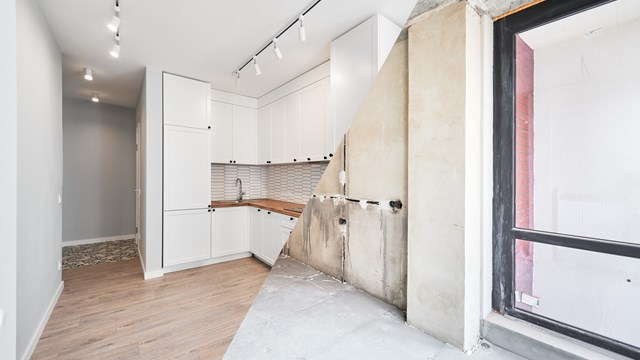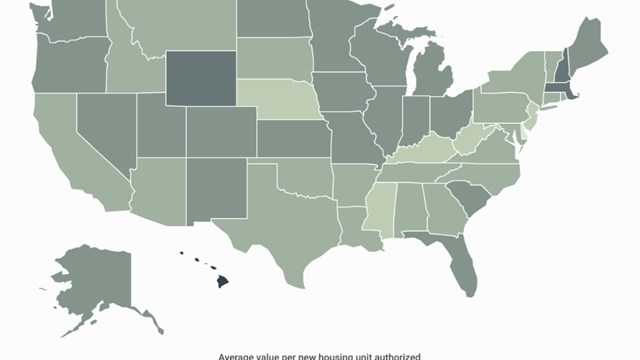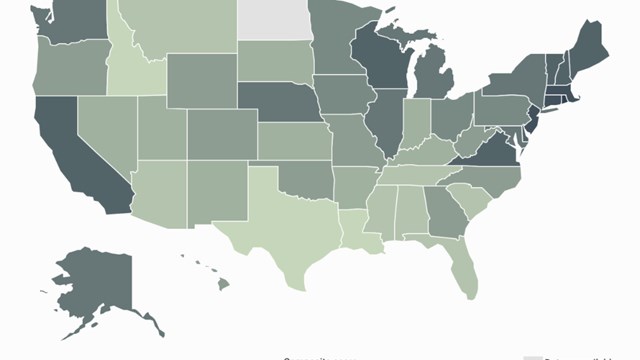Another year is behind us, and what a year it was! While 2017 and beyond promise to be eventful in myriad ways, it probably makes sense to focus solely on what’s ahead in the world of condominiums, cooperatives and homeowners’ associations for the moment. In effort to ascertain to what we can look forward, we reached out to various real estate professionals throughout New Jersey and asked them what they felt to be the definitive moments of the last year or so, how those moments will reverberate in the year ahead, and what else associations should be looking out for as they manage the day-to-day operations of their communities.
A Trip to the Market
The recession of the late aughts has never wandered far from our collective mind, and its effects are still being felt in a recovering real estate market, if less so now than it has in previous years.
“Basically, the market right now is stable,” says Tg Glazer, immediate past president of New Jersey Realtors®. “There’s nothing crazy going on in either direction, which is a very positive marker. The one area in which we are struggling overall is a decline in inventory, however. Real estate is very local, and some areas encounter this problem a little worse than others, but overall in the state there’s been about a 19% decline in the properties for sale year over year, gauging by our most recent numbers, taken in October. This makes it a little more difficult for buyers who are out there looking, as there’s not as much product as they’d hoped; but we are confident that the market is back on track after a tumultuous few years, and that continued low unemployment and low mortgage rates will continue this trend.”
In order for availability to revitalize the market, Glazer observes that people who are looking to upgrade their living situations need to get off the fence and do so. “We’ll see how changing interest rates will affect things,” he says. “Right now, people are complacent as rates have remained at historic lows, but those rates are starting to creep up. A new administration in the White House may affect those rates as well. If they start to go up further, people may be spurred to act while they’re still relatively low, before they get even higher.”
Situated as it is between New York City and Philadelphia, New Jersey has always been a great location for people looking to buy property close to major metropolitan centers without having to live in a big city proper. “There’s a great education system, which is always on the forefront of people’s minds,” adds Glazer. “We get that suburban sprawl; younger people from the city moving into Jersey City or Hoboken, starting families, then moving further out to find single family homes, more property or better schools.”
Managing Expectations
As with realtors and brokers, property managers must be on the cutting edge of all things condo, co-op and HOA, as best to represent their clients in an ever-evolving landscape. Changes in law, policy or technology are often brought to the board by a responsible and aware manager, such that the board can make an informed decision on behalf of their association in fulfillment of its fiduciary duty.
Energy is a major watchword these days, as many municipalities and states are evolving their rules and regulations to encourage the use of green technology. “From a board’s point of view, you can do several things,” says Joe Balzamo, president of Alliance Property Management LLC in Morristown. “I would suggest looking to incorporate any form of LED or LED photocells, as LED uses virtually no power today, and photocells are designed to only provide power as needed. You can also use photo-sensors for hallways, which will light up the room when triggered by a person’s presence.”
The cloud is rapidly becoming the modern file cabinet, with associations abandoning an overwhelming paper trail and housing their info on personalized websites. “We’re building a site now that will incorporate a universal dropbox and a Google dropbox to create transparency between an HOA and its members,” says Balzamo. “Board of directors meeting minutes, advertisements, public offering statements, bylaws, records...we’re currently utilizing the dropbox for these, and it’s working extremely well. We’re also using the web to register homeowners, such that we know everyone who lives at the property, and we can use the database for parking administration, or to keep track of pets. We gather emails and cell numbers to ensure that, in event of an emergency, we can contact individual owners with extreme weather warnings and the like.”
Balzamo also agrees that a new presidential administration is a potential catalyst for change. “Hopefully with a new government will come a new perspective on HOAs,” he says. “And hopefully the banks will be more interested in selling off real estate that has proved a hindrance to associations. For example, I have a building that has three unit owners in bankruptcy, and the banks aren’t selling off those properties. But they may be more inspired to do so with a new economy and a new president. A new president could mean new deregulation and a better outlook for banking and its impact on housing.”
Legalize It
What is or is not permissible for a board to do is always somewhat in flux under the letter of the law, and 2017 will see several tweaks in regard to how associations can conduct business on both local and national levels.
Loren Rosenberg Lightman, Esq. is both a partner at the law firm of Hill Wallack LLP in Princeton and a liaison for the legislative action committee for CAI, so she’s got her fingers on the pulse of advocacy items going into 2017. “Collections are always going to be a hot-button topic,” she says. “I get calls from boards, and if there are any owners in an association who owe a bunch of money, then that’s their laser focus. And there is a foreclosure reform bill pending in New Jersey that would deal with expediting foreclosure procedures for vacant and abandoned units, setting a process by which associations could more quickly foreclose on units that have grown to become eyesores in their communities.”
“Another major issue that I’ve seen in the last few months that may carry over into 2017, as there have been multiple cases of it, is the free speech issue,” Lightman continues. “Especially in this last election, people were very concerned as to how many political signs that they could place on their property, or people maintaining sites on social media that were not the official sites of the association, but were discussing association business. As intense as things have gotten politically of late, I imagine that the boundaries of what constitutes an owner’s right to free speech will continue to be pushed in the courts.”
One final theme that Lightman observes is more financial, pertaining to insurance deductibles. “There’s legislation pending, but I don’t know if it will go through,” she notes. “Years ago, if say a pipe burst, there would be a low deductible. But since [Superstorm] Sandy, among other factors, they’ve upped the deductibles to $5,000, $10,000 or even $15,000. And you go to a homeowner and they just don’t have the coverage. So the question is whether you can legislate whether or not an association can pass a deductible expense onto an owner.”
So yes, a new year comes in with the tides of change. And while none of these may seem to be revolutionary on their face, a board is best served by being aware of the incremental alterations that are happening in its orbit, lest it find itself caught asleep at the wheel when confronted with a decision that can best serve an association.
Michael Odenthal is a staff writer and reporter for The New Jersey Cooperator.










Leave a Comment